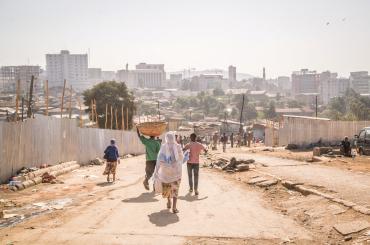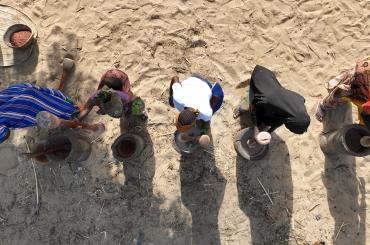
Poverty
-

The psychology of poverty
What do we know about how psychology and poverty interact?
-

Fighting urban poverty: Public works increase the welfare of the poor in Addis Ababa by 20%
A public works programme in Ethiopia improves welfare for the urban poor both directly for participants and indirectly through increasing private sector wages and improving amenities
-

Can psychosocial interventions make anti-poverty programmes more cost-effective? Evidence from Niger
A community-level film event and group-based life skills training can improve the cost-effectiveness of anti-poverty programmes
-

The downside of raising aspirations for poor entrepreneurs: Evidence from the Philippines
Encouraging the poor to set higher savings aspirations may backfire if they fall short of these goals, leading to less economic investment
-

Why does aid not target the poorest?
Ease of implementation might be a significant factor behind the flow of aid to richer parts of countries
-

Implementing poverty-reduction interventions at scale: Challenges and considerations
Programmes aimed at alleviating poverty must be designed in cost-effective ways before they can be used by government as viable public policy at scale
-

Can kindergarten combat learning inequality?
Participation in early childhood education programmes can lead to improved and lasting learning outcomes for disadvantaged children
-

Poverty and depression: How improving mental health can help economic wellbeing
How do poor mental health and poverty interact, and how can we best ensure access to mental health services?
-

Measuring deprivation: Going beyond income poverty and accounting for premature mortality
A year prematurely lost is as bad as a year spent in poverty. Aggregating these indices offers a more accurate insight into the progress of nations